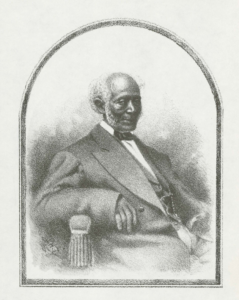 “The Life of James Williams: Better known as James Williams”
“The Life of James Williams: Better known as James Williams”
Research
When I began my research, I dove into the archives prepared to unearth undiscovered biographical information on James Williams, who I had learned was a black janitor at the college during the nineteenth century. I was under the impression that I would be doing the work that previous biographers failed to do, which was to give a holistic retelling of Williams’ life that was not focused on his contributions to Trinity College, as C.H. Proctor’s The Life of James Williams, Better Known as Professor Jim, For Half a Century a Janitor at Trinity College does. As my search in the archives progressed, I realized that the lack of information on Williams’ life outside of Trinity College was not exclusive, which led me to question why this was so. I started to look at the available sources on Williams more critically, and it struck me that the language used to portray Williams in older Trinity publications like the Tatler and the Tablet was paternalistic and was sprinkled with white supremacist assumptions and thoughts. I made the connection that Williams was portrayed in a caricaturized manner, not unlike the way blackface minstrelsy entertainers depicted black people in their performances. From thereon, my interest shifted, and I began to focus on discussing the larger issue of the misrepresentation and exclusion of marginalized voices in the archive and in academia, the ways in which the sources on Williams are reflective of this exclusion, and how I might challenge and rework the way Williams has been portrayed and commemorated on campus.
Commemoration
The case of James Williams and his memory on campus is an interesting one, because it is not completely ignored. Instead, Williams’ life and legacy are tainted by problematic commemorations that reproduce the white supremacist/anti-black/paternalistic nature of the easily accessible and existing sources that discuss him. Taking this and my research into consideration, I aimed to structure a commemoration that disrupted the misrepresentation of Williams and challenged the normalization and institutionalization of using exclusive frameworks to recount history, but that would also be meaningful and impactful for students who also exist on the margins. From these goals came my idea for the James Williams Program, which would 1) provide marginalized students with financial support in order to have an equitable learning and living environment (i.e. recurring textbook aid, assistance with flights/transportation) and 2) create programming and initiatives aimed at disrupting the misrepresentation and exclusion of marginalized voices in the archive and academia at large.
For the full research findings, click here: